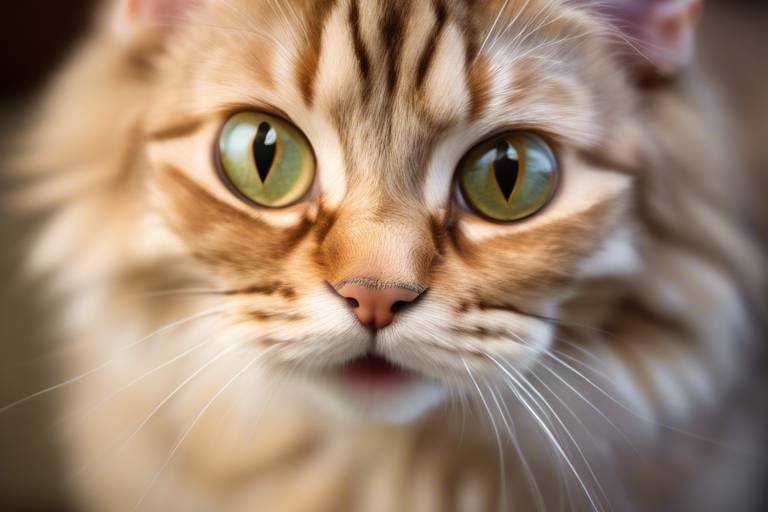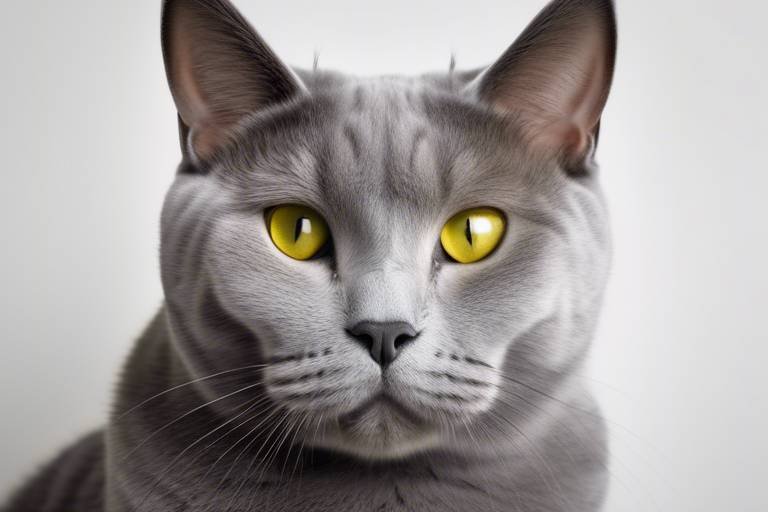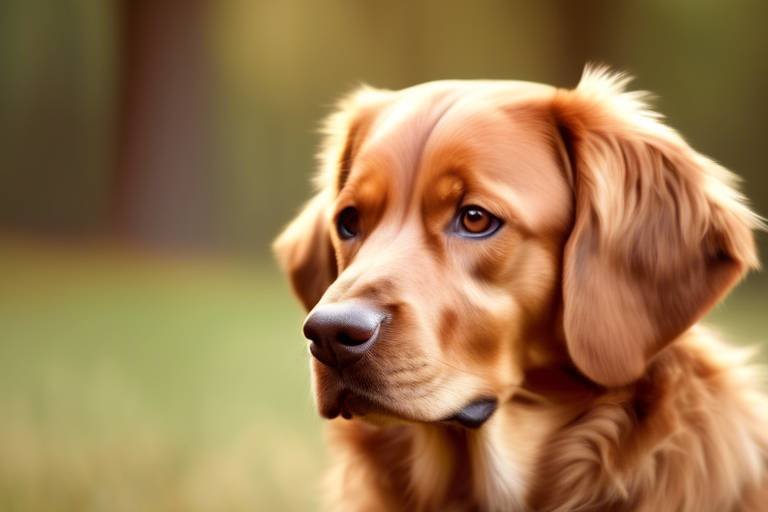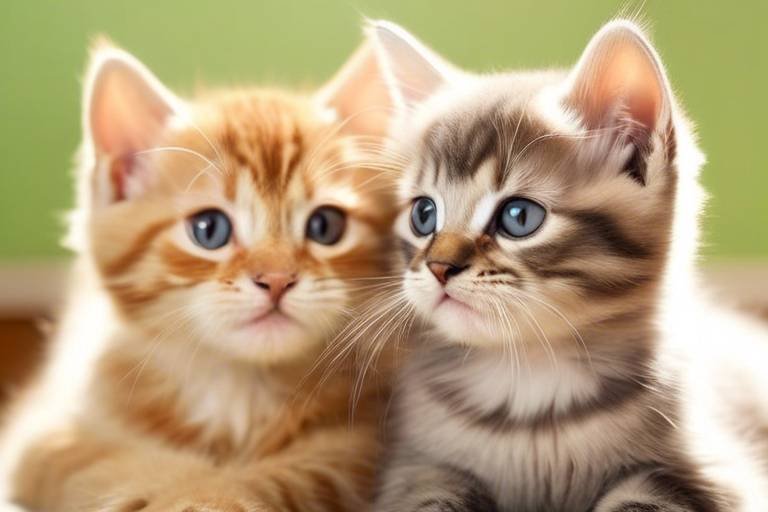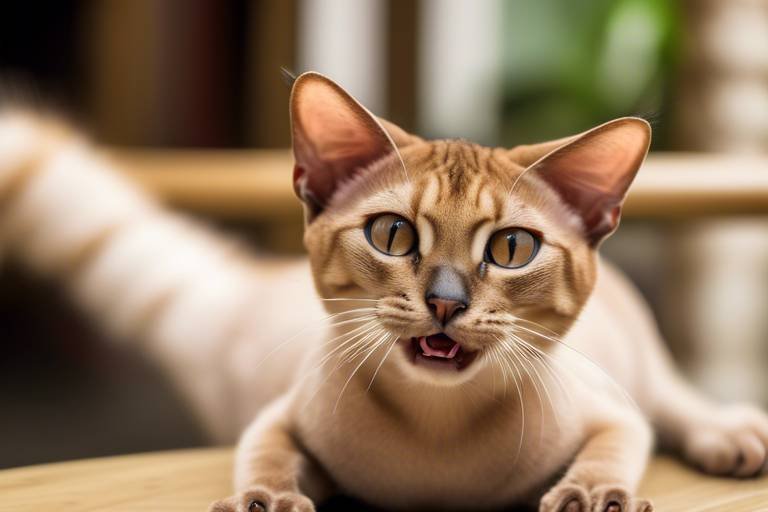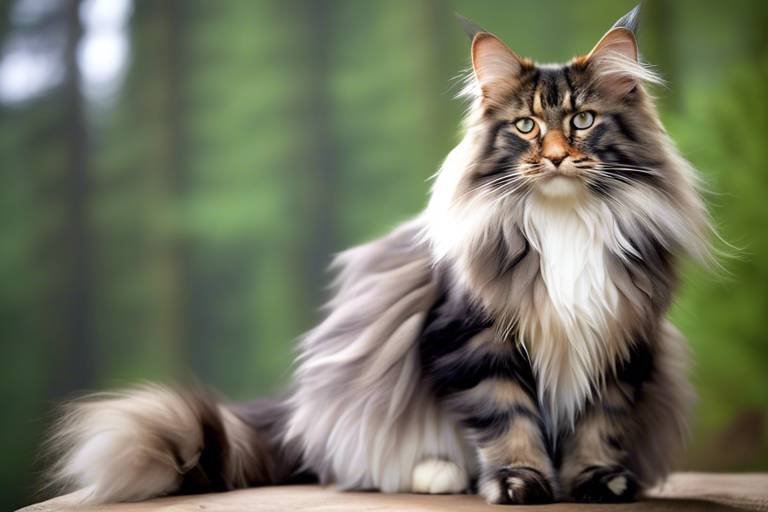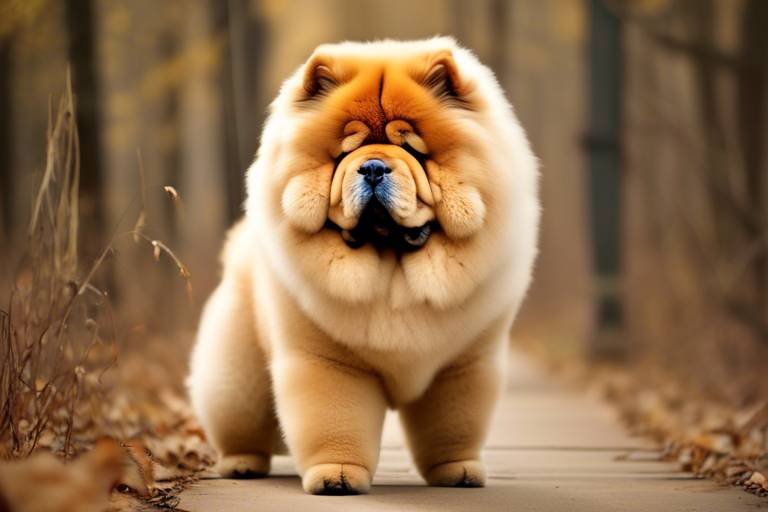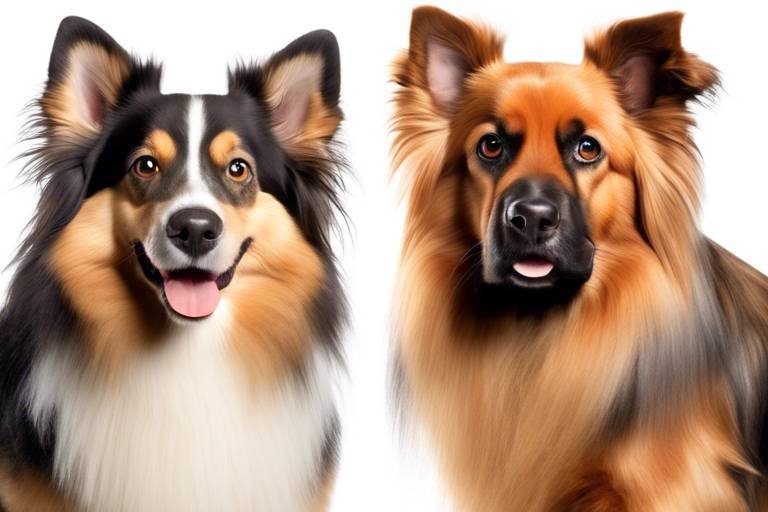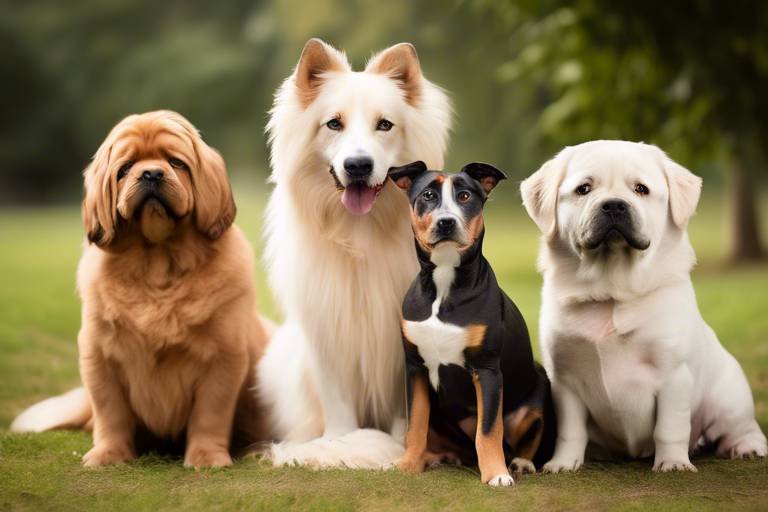The Characteristics of the Siberian Husky - Fun and Energy
Siberian Huskies are not just dogs; they are a whirlwind of fun and energy wrapped in a beautiful package. With their stunning looks and playful personalities, it's no wonder that they have captured the hearts of dog lovers worldwide. Imagine a dog that looks like it just stepped out of a winter wonderland, with its thick double coat, piercing blue or multi-colored eyes, and a friendly grin that seems to say, "Let's play!" These dogs are not just about appearances, though; they possess a unique combination of traits that make them both fascinating and challenging companions.
One of the most remarkable aspects of a Siberian Husky is their boundless energy. These dogs were originally bred as sled dogs in the harsh climates of Siberia, which means they were designed to work hard and play even harder. If you’re considering bringing a Husky into your life, be prepared for an active lifestyle! They thrive on exercise and require regular physical activity to keep them happy and healthy. Think of them as your best workout buddy, always ready to hit the trails or play fetch in the park. Without sufficient exercise, they can become bored and find creative ways to entertain themselves, which often leads to mischief.
But it’s not just their physical attributes that make Huskies so special; their temperament is equally captivating. They are known for being friendly and outgoing, which makes them excellent family pets. Huskies love to be around people and other dogs, so if you’re looking for a loyal companion who will thrive in a social environment, a Siberian Husky might just be the perfect fit. They are the life of the party, always eager to join in on family activities and adventures. However, this sociability also means that they can experience separation anxiety if left alone for long periods, so it's essential to consider your lifestyle before bringing one into your home.
When it comes to their playful nature, Siberian Huskies are like perpetual puppies. They love to engage in various activities that stimulate both their mind and body. Whether it's a game of tug-of-war, a long run, or even just chasing after a ball, they are always ready to have a good time. This playfulness not only keeps them entertained but also strengthens the bond between them and their owners. Imagine the joy of watching your Husky sprint around the yard, their ears flopping in the wind, and their joyful barks filling the air!
However, with all this fun and energy comes a few challenges. Training a Siberian Husky can be a bit of a rollercoaster ride. While they are intelligent and capable of learning commands, their independent nature can sometimes make them a bit stubborn. It's essential to approach training with patience and consistency. Think of it like trying to convince a teenager to clean their room; it requires persistence and a positive attitude. Using positive reinforcement techniques can go a long way in helping your Husky learn and obey commands.
In conclusion, Siberian Huskies are a delightful mix of fun, energy, and charm. Their striking physical traits, playful demeanor, and friendly temperament make them a popular choice for dog lovers. However, potential owners should be aware of their high energy levels and the need for regular training and social interaction. If you can meet their needs, you’ll find that a Siberian Husky can bring an incredible amount of joy and companionship into your life.
- Are Siberian Huskies good with children? Yes, they are typically friendly and affectionate with kids, making them great family pets.
- Do Huskies require a lot of exercise? Absolutely! They need daily exercise to stay healthy and prevent boredom.
- Are Siberian Huskies easy to train? They can be challenging to train due to their independent nature, but with patience and positive reinforcement, they can learn well.
- How much grooming do they need? Siberian Huskies have a thick double coat that requires regular brushing, especially during shedding seasons.
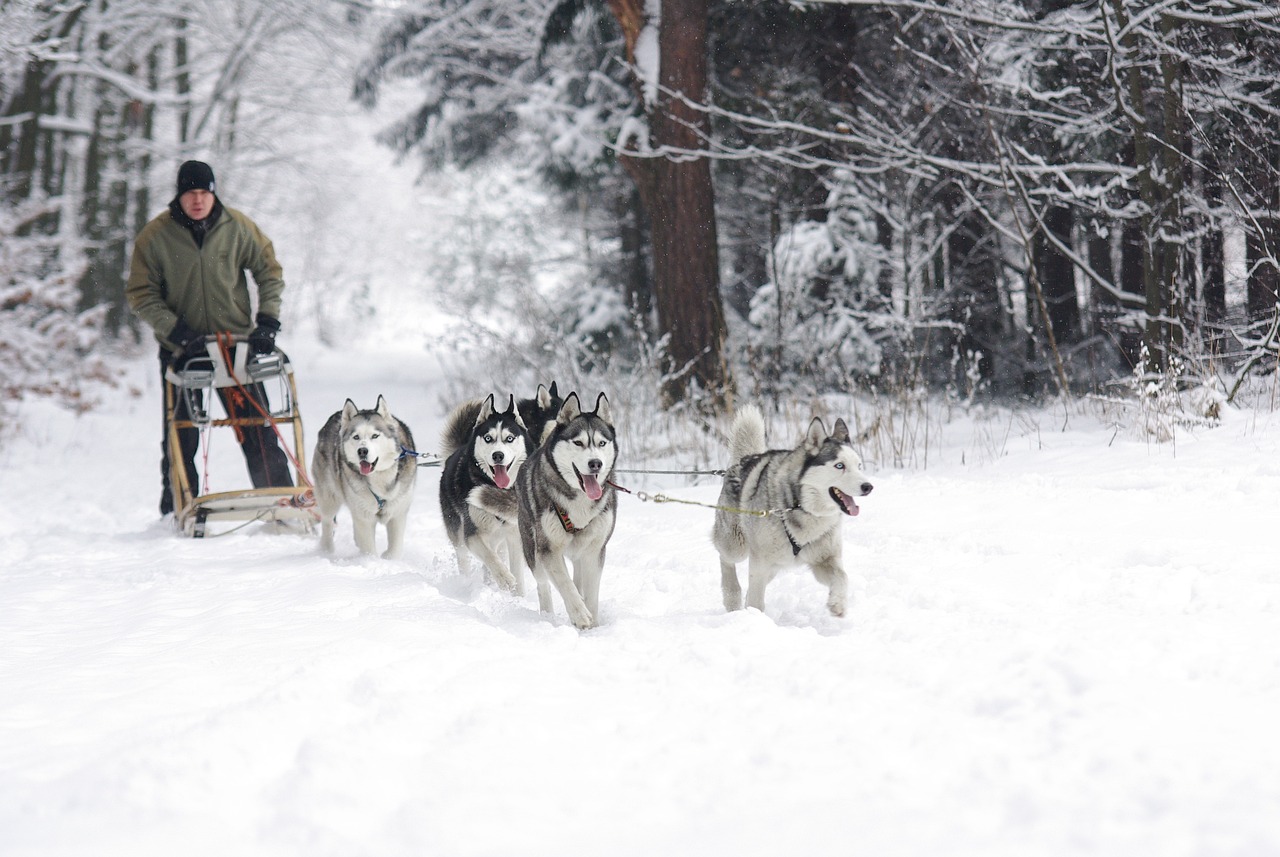
Physical Traits
Siberian Huskies are truly a sight to behold! Their striking appearance is one of the first things that draws people to this breed. With a thick double coat that comes in a variety of colors—ranging from black and gray to red and agouti—these dogs are not just beautiful; they are also well-equipped to handle cold climates. This coat serves as insulation against frigid temperatures, allowing them to thrive in snowy environments.
One of the most distinctive features of the Siberian Husky is their erect ears. These ears are not just for show; they help the dog hear better in the wild, which is essential for their historical role as sled dogs. The combination of their erect ears and striking facial markings, which often include masks or spectacles, gives them an expressive and captivating look. Each Husky has a unique pattern, making them stand out in a crowd.
In terms of size, Siberian Huskies are medium-sized dogs, typically weighing between 35 to 60 pounds and standing about 20 to 24 inches tall at the shoulder. Their athletic build is complemented by a well-proportioned body, which is designed for endurance and speed. Huskies have a strong, straight back and a bushy tail that curls over their back, adding to their overall charm.
To sum it up, the physical traits of a Siberian Husky are not just about aesthetics; they are a testament to the breed's history and purpose. Their elegant appearance, coupled with their robust build, makes them not only appealing but also incredibly functional. Whether they are sprinting through the snow or lounging in the sun, these dogs are always a joy to behold!
| Physical Trait | Description |
|---|---|
| Coat | Thick double coat, available in various colors |
| Ears | Erect ears for improved hearing |
| Size | Medium-sized, weighing 35-60 pounds |
| Height | 20-24 inches tall at the shoulder |
| Tail | Bushy tail that curls over the back |
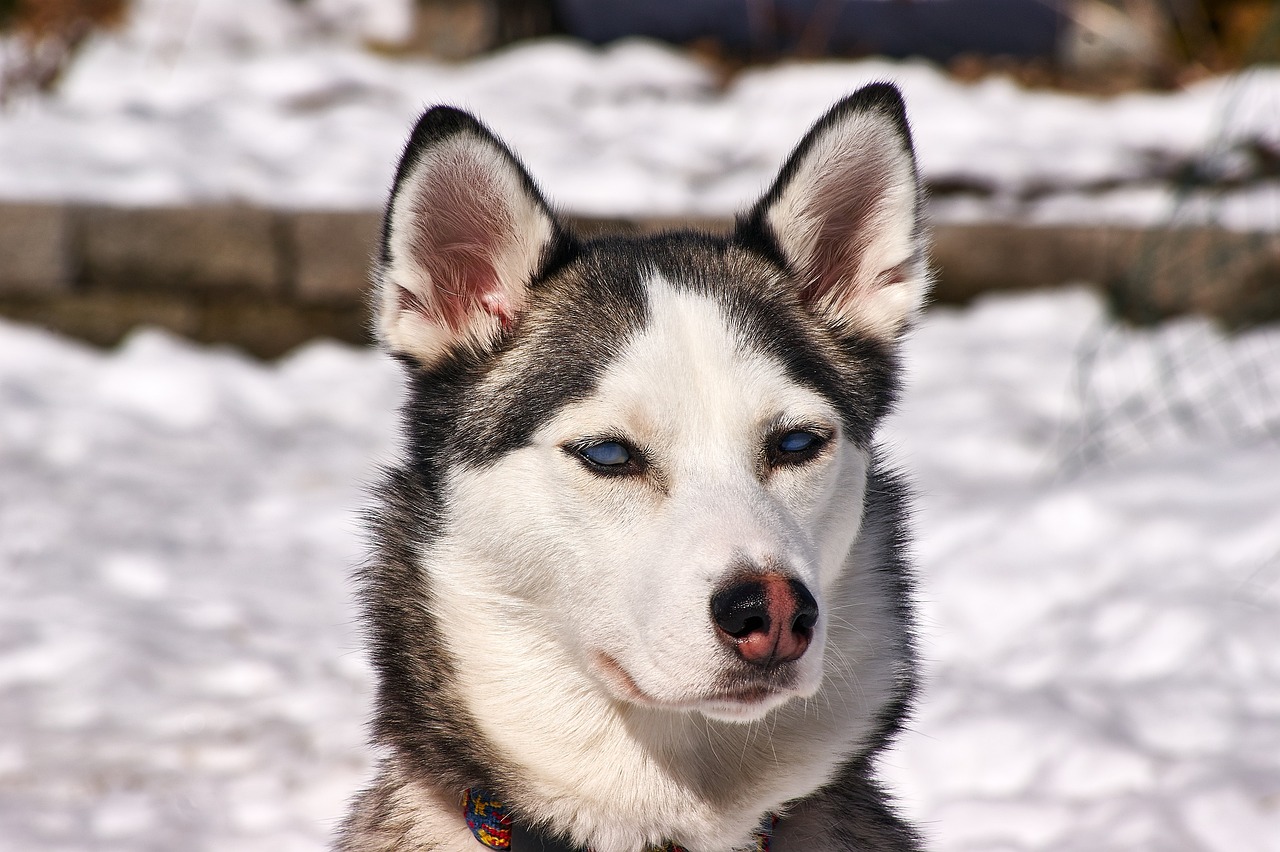
Temperament
The temperament of a Siberian Husky is often described as friendly and outgoing. These dogs are known for their vibrant personalities, which can light up any room. They thrive on companionship, making them excellent family pets and ideal companions for active individuals. Imagine coming home after a long day; your Husky greets you with boundless energy, tail wagging like a flag in the wind. It’s this warm and welcoming nature that makes them so appealing to dog lovers around the globe.
Siberian Huskies are not just friendly; they are also incredibly social creatures. They enjoy the company of both humans and other dogs, often forming strong bonds with their families. This sociability means they require regular interaction to stay happy. Think of them as the life of the party—always wanting to be included in the fun and games. Regular playdates and outings can greatly enhance their social skills and overall well-being. Without enough social interaction, Huskies can become bored and may exhibit unwanted behaviors, so it’s essential to keep them engaged.
However, it’s important to note that while they are intelligent, Huskies can also be quite independent and even a bit stubborn. Training them can sometimes feel like trying to teach a cat to fetch—challenging, yet not impossible! They have their own minds and may not always follow commands immediately. This independence can be frustrating for new owners, but with patience and consistency, you can train them effectively. It’s all about finding the right balance between discipline and playfulness. After all, a well-trained Husky is a happy Husky!
In addition to their charming personality, Siberian Huskies are known for their playfulness. They love engaging in various activities, whether it’s running, playing fetch, or simply frolicking in the yard. Their playful nature not only keeps them entertained but also strengthens the bond between them and their owners. Imagine tossing a ball across the yard and watching your Husky sprint after it, full of joy and enthusiasm. This playful spirit is infectious, making it hard not to join in on the fun!
To sum it up, the temperament of a Siberian Husky is a delightful mix of friendliness, playfulness, and independence. They thrive on social interactions and require regular activities to keep their spirits high. While training may present some challenges, the rewards of having a well-mannered Husky are well worth the effort. So, if you’re ready for a companion that brings joy, energy, and a little bit of mischief into your life, a Siberian Husky might just be the perfect match for you!
- Are Siberian Huskies good with children?
Yes, they are known to be friendly and gentle with children, making them great family pets. - Do Siberian Huskies require a lot of exercise?
Absolutely! They have high energy levels and need plenty of physical activity to stay healthy and happy. - Can Siberian Huskies be left alone for long periods?
They prefer companionship and can become bored or anxious if left alone for too long. - How do I train a Siberian Husky?
Training requires patience and consistency. Positive reinforcement techniques work best.
Playfulness
Siberian Huskies are not just dogs; they are bundles of joy wrapped in fur! Their playful nature is one of the key traits that make them so irresistible to dog lovers. Imagine a furry tornado of energy, zipping around your backyard, chasing after a ball or a frisbee, with their tails wagging like a flag in the wind. This breed thrives on playtime, and it’s a crucial part of their daily routine. Engaging in activities like fetch, tug-of-war, or even simple games of hide-and-seek can keep these spirited pups entertained for hours.
But their playfulness isn't just about burning off energy; it’s also a way for them to bond with their owners. When you throw a ball, you're not just giving them a chance to run; you're creating a shared experience that strengthens your connection. It's akin to two friends going on an adventure together, discovering new places and enjoying each other's company. Regular play not only keeps your Husky physically fit but also mentally stimulated, which is essential for this intelligent breed.
Furthermore, Huskies love to explore! Their curious nature means that they enjoy discovering new environments, whether it's a trip to the park or a hike in the woods. It's important to provide them with opportunities to engage with their surroundings. This can be as simple as a stroll around the neighborhood or as adventurous as a weekend camping trip. The more varied the experiences, the more fulfilled your Husky will feel.
However, it's crucial to remember that with great playfulness comes a need for supervision. Huskies are known for their mischievous streak, and they can easily get into trouble if left unattended. They might dig up your garden or attempt to escape in search of their next adventure. Therefore, always keep an eye on your furry friend during playtime and ensure they are in a safe environment.
In summary, the playfulness of a Siberian Husky is not just a characteristic; it's a lifestyle. They invite you to join in their fun, to laugh, to run, and to explore the world together. So, if you’re considering bringing a Husky into your life, be prepared for a whirlwind of joy and excitement!
- How much exercise does a Siberian Husky need?
A Siberian Husky typically requires at least 1-2 hours of exercise each day to stay healthy and happy. - Are Siberian Huskies good with children?
Yes, they are generally friendly and outgoing, making them great companions for children. - Can Siberian Huskies be left alone?
They can be left alone for short periods, but they thrive on social interaction and may become bored or destructive if left alone for too long. - Do Siberian Huskies shed a lot?
Yes, they have a thick double coat and shed heavily, especially during seasonal changes.
Social Interaction
Siberian Huskies are not just dogs; they are vibrant, social beings that thrive on interaction and companionship. Imagine a child at a playground, full of energy and excitement, eager to make friends and play games—that's a Siberian Husky in a nutshell! These dogs are inherently social creatures, and their happiness often hinges on their ability to connect with both humans and other dogs. If you’re considering adding a Husky to your family, be prepared for a furry friend that craves attention and camaraderie.
Regular social interaction is crucial for keeping your Husky mentally stimulated and emotionally fulfilled. They love to be included in family activities, whether it’s a hike in the woods or a simple game of fetch in the backyard. Engaging in these activities not only helps strengthen the bond between you and your Husky but also provides them with the socialization they need to thrive. It's like giving them a ticket to the best amusement park in town—every outing is an adventure!
To ensure your Husky develops good social skills, consider incorporating the following into your routine:
- Playdates: Arrange regular playdates with other dogs. This will help your Husky learn appropriate behaviors and develop friendships.
- Training Classes: Enroll your Husky in group training sessions. Not only will they learn commands, but they’ll also get the chance to interact with other dogs and people.
- Family Outings: Include your Husky in family outings. Whether it’s a picnic in the park or a trip to a pet-friendly café, these experiences are invaluable.
Moreover, Huskies are known for their playful antics and unique personalities. They often engage in behaviors that make them the life of the party. From their playful howls to their mischievous acts, they tend to keep everyone entertained. Just like a jester in a royal court, they bring joy and laughter wherever they go. However, it’s essential to monitor their interactions, especially with smaller pets, as their playful nature can sometimes be a bit too exuberant!
In summary, fostering social interaction for your Siberian Husky is not just beneficial; it’s essential for their overall well-being. By ensuring they have ample opportunities to socialize, you’re not only making them happier but also creating a more harmonious household. So, gear up for some fun-filled adventures with your Husky, and watch as they blossom into the social butterflies they are meant to be!
- How much social interaction does a Siberian Husky need? Huskies thrive on daily interaction with humans and other dogs. Aim for at least an hour of social activities each day.
- Can Huskies get along with other pets? Yes, but early socialization is key. Monitor their interactions, especially with smaller animals.
- What are the best activities for socializing my Husky? Activities like dog parks, group training classes, and family outings are excellent for socialization.
Training Challenges
Training a Siberian Husky can feel like trying to teach a cat to fetch—challenging, to say the least! While these dogs are undeniably intelligent, they also possess a unique streak of independence that can make training a bit of a rollercoaster ride. Imagine having a conversation with a friend who occasionally decides to ignore your advice—frustrating, right? That's how it can feel when trying to train a Husky. They often have their own agenda and might not always see the value in following commands.
One of the key challenges in training Huskies is their stubbornness. This breed is known for its strong will, which can lead to some interesting training sessions. To effectively train a Siberian Husky, owners need to adopt a strategy that combines patience with a touch of creativity. Here are some tips to make the training process smoother:
- Positive Reinforcement: Use treats and praise to reward good behavior. Huskies respond well to encouragement, so make training a fun experience.
- Consistency is Key: Establish a routine and stick to it. Huskies thrive on predictability, and knowing what to expect can help them feel more secure.
- Short Training Sessions: Keep training sessions brief but frequent. Huskies have short attention spans, so quick bursts of training can be more effective.
- Engage Their Minds: Incorporate puzzle toys or interactive games to challenge their intellect. A tired Husky is a well-behaved Husky!
Additionally, socialization is a critical aspect of training. Huskies are social creatures, and exposing them to various environments, people, and other dogs can help curb undesirable behaviors. Think of it like sending a child to summer camp; the more they socialize, the better they learn to interact with others. Regular playdates or group training classes can be beneficial, allowing them to learn from their peers and develop essential social skills.
However, even with the best training techniques, you might encounter moments of resistance. It’s essential to remember that a Siberian Husky is not a robot; they have their own personalities and quirks. Embracing their uniqueness can lead to a more enjoyable training experience. Just like any relationship, training a Husky requires understanding and flexibility. So, if your Husky decides to take a detour during a walk or suddenly loses interest in the command you just taught, take a deep breath and laugh it off. After all, training is a journey, not a race!
Q: Are Siberian Huskies easy to train?
A: While they are intelligent, their independent nature can make training a challenge. Patience and consistency are crucial.
Q: How long should training sessions be?
A: Keep training sessions short—around 5 to 10 minutes—to hold their attention.
Q: Do Huskies require socialization?
A: Yes, socialization is essential for Huskies to develop good behavior and social skills.
Q: What is the best way to motivate a Husky during training?
A: Use positive reinforcement techniques, such as treats and praise, to encourage desired behaviors.
Energy Levels
Siberian Huskies are renowned for their high energy levels, which is one of the most defining traits of this breed. If you’re considering bringing a Husky into your home, be prepared for a whirlwind of activity! These dogs are not just your average couch potatoes; they thrive on exercise and require a daily dose of physical activity to keep them happy and healthy. Imagine having a furry tornado zooming around your yard—this is what a typical day looks like with a Siberian Husky!
On average, a Siberian Husky needs about 1.5 to 2 hours of exercise each day. This can include a mix of activities such as:
- Long walks or jogs
- Playing fetch in the park
- Agility training to stimulate their minds
- Hiking on trails
Without sufficient exercise, Huskies can become bored and may engage in destructive behaviors. Think of them as energetic kids who need to burn off their excess energy; otherwise, they might start tearing up the furniture or digging holes in the yard! Therefore, it’s crucial for Husky owners to create a routine that includes plenty of physical activity.
Additionally, Huskies are known for their love of play. They enjoy games that challenge their agility and speed. Activities such as running alongside a bicycle or participating in dog sports can be incredibly fulfilling for them. To keep their minds sharp and their bodies fit, consider incorporating interactive toys that require problem-solving skills, as this can help channel their energy positively.
In summary, if you’re looking for a dog that will keep you on your toes and encourage you to stay active, a Siberian Husky might be the perfect companion. Just remember, with great energy levels comes great responsibility. Are you ready to embrace the adventure?
- How much exercise does a Siberian Husky need daily?
A Siberian Husky typically requires 1.5 to 2 hours of exercise each day to stay happy and healthy. - Can Huskies live in apartments?
While Huskies can adapt to apartment living, they need plenty of exercise and mental stimulation to prevent boredom. - What are some good activities for Huskies?
Huskies enjoy running, hiking, playing fetch, and participating in dog sports. - Are Huskies good with children?
Yes, Huskies are generally friendly and social, making them great companions for families with children.
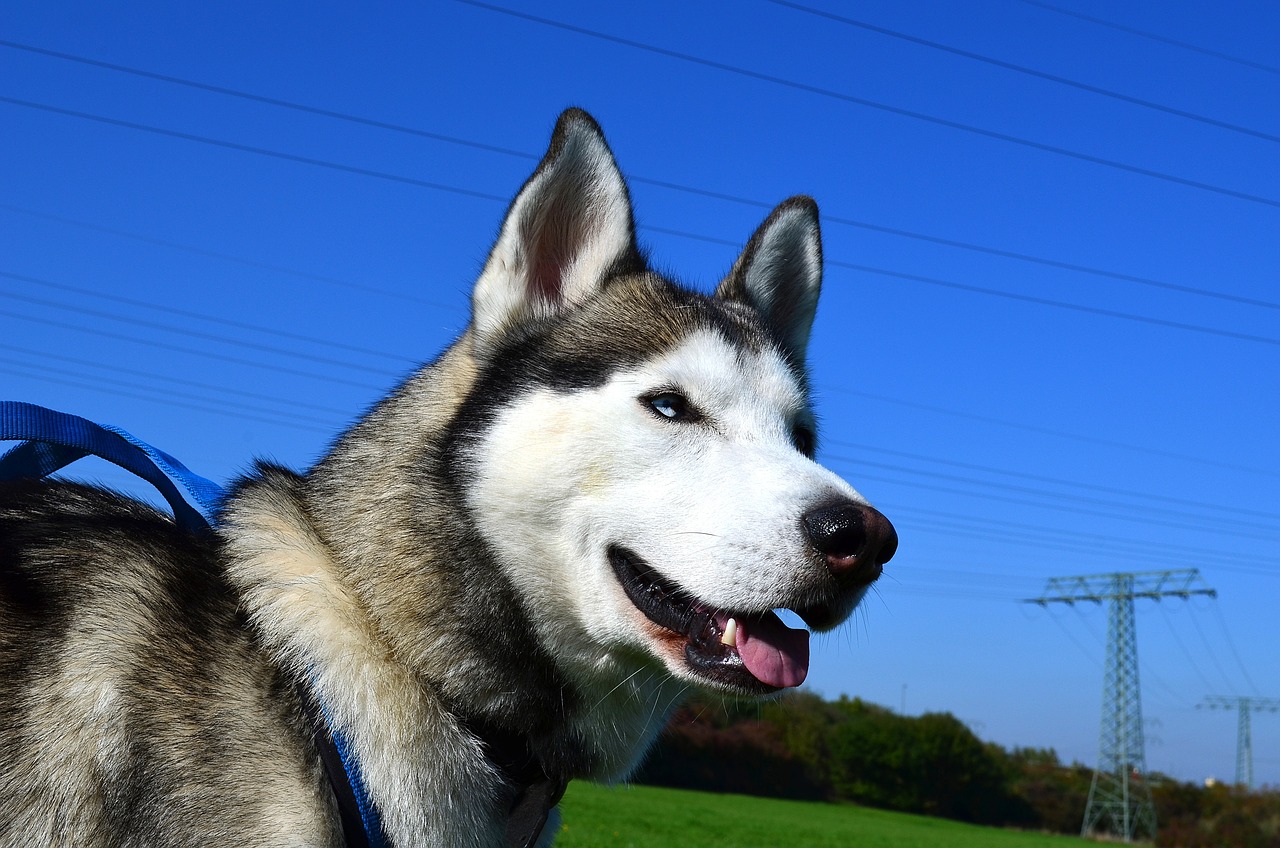
Health Considerations
When it comes to the health of Siberian Huskies, there are several factors to consider that can significantly impact their well-being. Just like any other breed, Siberian Huskies are prone to certain health issues that potential owners should be aware of. Understanding these conditions not only helps in providing better care but also ensures a longer, healthier life for your furry friend. For instance, hip dysplasia is a common concern among Huskies, a condition where the hip joint doesn't fit into the hip socket properly, leading to arthritis and pain as they age. Additionally, eye disorders such as cataracts and progressive retinal atrophy can also affect their vision, which is crucial for their active lifestyle.
Regular veterinary check-ups play a vital role in the early detection and management of these health issues. It's essential to keep up with vaccinations and routine screenings to catch any potential problems before they escalate. Moreover, a balanced diet tailored to their specific needs can help in maintaining their overall health. For instance, a diet rich in omega fatty acids can support skin and coat health, which is particularly important for Huskies with their thick double coat.
Here’s a quick overview of some common health issues and preventive measures:
| Health Issue | Description | Preventive Measures |
|---|---|---|
| Hip Dysplasia | A genetic condition affecting the hip joint. | Regular vet check-ups, maintaining a healthy weight. |
| Eye Disorders | Conditions like cataracts and retinal atrophy. | Routine eye exams, proper nutrition. |
Preventive care is not just about addressing health issues as they arise; it’s about taking a proactive approach to your Husky's health. Regular exercise is crucial, as it keeps them physically fit and mentally stimulated, reducing the risk of obesity and related health problems. Furthermore, socialization plays a key role in their mental health, so engaging with other dogs and people can help them develop a well-rounded personality.
In summary, being aware of the health considerations for Siberian Huskies can greatly enhance their quality of life. By staying vigilant and proactive, you can ensure that your Husky not only thrives but also enjoys a vibrant, energetic life full of adventures with you.
- What is the average lifespan of a Siberian Husky? Siberian Huskies typically live between 12 to 15 years, depending on their health and care.
- Are Siberian Huskies prone to any specific diseases? Yes, they can be susceptible to hip dysplasia and certain eye conditions.
- How often should I take my Husky to the vet? Regular check-ups every 6 to 12 months are recommended to monitor their health.
- What kind of diet is best for a Siberian Husky? A balanced diet rich in protein and healthy fats, along with adequate hydration, is ideal.
Common Health Issues
Siberian Huskies, while generally robust and energetic, are not without their health challenges. Just like any other breed, they are susceptible to certain health conditions that can affect their quality of life. Understanding these issues is crucial for any potential or current owner. One of the most common health concerns in Huskies is hip dysplasia, a genetic condition where the hip joint doesn't fit snugly into the hip socket. This can lead to arthritis and pain over time, significantly affecting their mobility. Regular veterinary check-ups and maintaining a healthy weight can help manage this condition.
Another prevalent issue is eye disorders, including cataracts and progressive retinal atrophy (PRA). These conditions can lead to vision impairment and, in some cases, blindness. The Siberian Husky is particularly prone to developing cataracts at a younger age compared to other breeds. It's essential to monitor their vision and consult a veterinarian if any changes are noticed. Early detection can make a significant difference in treatment outcomes.
Moreover, Huskies are also prone to skin conditions such as allergies and dermatitis. These can manifest as itching, redness, or hair loss, often requiring dietary adjustments or topical treatments. Keeping their coat clean and well-groomed is not just about aesthetics; it plays a vital role in their overall health. Regular grooming sessions can help identify any skin issues early on.
To provide a clearer understanding, here’s a table summarizing these common health issues:
| Health Issue | Description | Prevention |
|---|---|---|
| Hip Dysplasia | A genetic condition affecting the hip joint, leading to arthritis. | Regular vet check-ups, maintaining a healthy weight. |
| Eye Disorders | Conditions like cataracts and PRA that can impair vision. | Regular eye exams, monitoring for changes in vision. |
| Skin Conditions | Allergies and dermatitis causing itching and hair loss. | Regular grooming, monitoring diet for allergens. |
By being aware of these common health issues, Husky owners can take proactive steps to ensure their furry friends lead long, healthy lives. Regular veterinary visits, a balanced diet, and ample exercise are vital components of a comprehensive care plan. After all, a happy and healthy Siberian Husky is a joy to have around!
- What is the average lifespan of a Siberian Husky? Typically, Siberian Huskies live between 12 to 15 years with proper care.
- Do Siberian Huskies shed a lot? Yes, they have a double coat that sheds heavily, especially during seasonal changes.
- Are Siberian Huskies good with children? Absolutely! They are known for their friendly and playful nature, making them great family pets.
- How much exercise do Siberian Huskies need? Huskies require at least 1-2 hours of vigorous exercise daily to keep them happy and healthy.
Preventive Care
This article explores the unique traits of Siberian Huskies, highlighting their playful nature, intelligence, and energetic disposition, making them a popular choice for dog lovers around the world.
Siberian Huskies are known for their striking appearance, including their thick double coat, erect ears, and distinctive facial markings. These physical characteristics contribute to their appeal and adaptability to various climates.
The temperament of a Siberian Husky is often described as friendly and outgoing. They are social dogs that thrive on companionship, making them great family pets and companions for active individuals.
Siberian Huskies are incredibly playful and enjoy engaging in various activities, from running to playing fetch. Their playful nature keeps them entertained and helps strengthen bonds with their owners.
These dogs require social interaction with both humans and other dogs to maintain their happiness. Regular playdates and outings can enhance their social skills and overall well-being.
While they are intelligent, Huskies can also be independent and stubborn. Training them requires patience and consistency, as they may not always follow commands immediately.
Siberian Huskies possess high energy levels, requiring ample exercise to stay healthy and happy. Regular physical activity is essential to prevent boredom and destructive behavior.
Like all breeds, Siberian Huskies are prone to certain health issues. Understanding these conditions can help owners provide better care and ensure a longer, healthier life for their pets.
Some common health issues in Siberian Huskies include hip dysplasia and eye disorders. Regular veterinary check-ups can help in early detection and management of these conditions.
Preventive care is crucial for ensuring that your Siberian Husky remains healthy and vibrant throughout their life. This involves several key components that every owner should be aware of. First and foremost, regular veterinary visits are essential. These check-ups allow your vet to monitor your dog's health, provide vaccinations, and conduct necessary screenings for conditions that Huskies are prone to, such as hip dysplasia and eye disorders.
In addition to veterinary visits, nutrition plays a fundamental role in your Husky's preventive care. A well-balanced diet tailored to their specific age, weight, and activity level is vital. Look for high-quality dog food that lists meat as the first ingredient, and consider consulting your veterinarian for personalized dietary recommendations. Proper nutrition not only supports their energy levels but also contributes to their overall health.
Moreover, exercise cannot be overlooked. Huskies are energetic dogs that require daily physical activity to stay fit and prevent behavioral issues. Regular walks, play sessions, and even activities like hiking can help keep their energy levels in check while also promoting a healthy weight. Aim for at least 1-2 hours of exercise each day to keep your Husky happy and healthy.
Finally, grooming is an essential part of preventive care for Siberian Huskies. Their thick double coat requires regular brushing to prevent matting and reduce shedding. This not only keeps your home cleaner but also helps you monitor your dog's skin health. Look out for any unusual lumps, bumps, or irritations during grooming sessions, and consult your veterinarian if you notice anything concerning.
In summary, by focusing on regular veterinary care, proper nutrition, consistent exercise, and grooming, you can help your Siberian Husky lead a long, healthy, and happy life.
- How often should I take my Siberian Husky to the vet? It's recommended to take your Husky for a check-up at least once a year, or more frequently if they have existing health issues.
- What kind of food is best for a Siberian Husky? Look for high-quality dog food that is rich in protein, with meat as the primary ingredient, and suitable for their age and activity level.
- How much exercise does a Siberian Husky need? Huskies typically require 1-2 hours of exercise each day to keep them healthy and prevent boredom.
- Do Siberian Huskies shed a lot? Yes, they have a thick double coat that sheds seasonally, so regular grooming is necessary to manage shedding.
Frequently Asked Questions
- What are the key physical traits of a Siberian Husky?
Siberian Huskies are known for their stunning appearance, which includes a thick double coat that keeps them warm in cold climates, erect ears that give them an alert look, and striking facial markings that can vary greatly between individuals. Their physical characteristics not only make them look beautiful but also help them adapt to various environments.
- How do Siberian Huskies behave around people and other dogs?
Siberian Huskies are incredibly friendly and outgoing. They thrive on social interaction, making them excellent family pets. These dogs love to be around people and often get along well with other dogs. Regular playdates and social outings are essential for their happiness and help them develop good social skills.
- Are Siberian Huskies easy to train?
Training a Siberian Husky can be a bit of a challenge. While they are intelligent, they also have a stubborn streak. This means that training requires patience and consistency. It's important to use positive reinforcement and make training sessions fun to keep their interest and encourage them to follow commands.
- How much exercise do Siberian Huskies need?
Siberian Huskies are high-energy dogs that require a significant amount of exercise to stay healthy and happy. Daily activities such as running, playing fetch, and engaging in other physical activities are crucial. Without enough exercise, they may become bored and exhibit destructive behavior.
- What health issues are common in Siberian Huskies?
Like any breed, Siberian Huskies can be prone to certain health issues. Common concerns include hip dysplasia and various eye disorders. Regular veterinary check-ups are important for early detection and management of these conditions, ensuring your Husky remains healthy.
- What preventive care do Siberian Huskies need?
Preventive care is vital for maintaining the health of a Siberian Husky. This includes regular vaccinations, proper nutrition, and routine veterinary visits. A proactive approach to their health can lead to a longer, happier life for your energetic companion.




